Sent to you by Tony via google reader:
I admit, I love it when people send me product samples. I’m a junkie for trying new foods and products. So when the folks over at Real Wasabi asked me if I’d like to take 1/4lb of wasabi rhizomes for a spin, I said… SURE!
Most people have probably never eaten real wasabi. Most of the wasabi that you get in sushi restaurants or that is used as a flavoring for snacks and other products is really just white horseradish that is colored green. From a botanical perspective, Wasabi (Wasabia japonica) has little or no relation to white horseradish, and in terms of actual flavor, its really a lot different.
An apt comparison would be how most people perceive the cinnamon used on their French toast or as a common spice as real cinnamon, but in most cases it isn’t — real cinnamon comes from the rare bark of a tree that grows in Ceylon, as opposed to the bark of the Vietnamese cassia tree, the most common substitute.
Similarily, real Wasabi is grated wasabi rhizome, not white horseradish which most common wasabi powder comes from. Although both plants are from the crucifer family, they really taste very different. Wasabi has almost an “electric” taste with a very distinctive tingling sensation produced, which horseradish does not. What it does have in common with horseradish is its incredible pungency, although it is much more fleeting in effect.
One of the reasons why white horseradish is substituted for wasabi is that up until very recently, it only grew in
RealWasabi.com is one of the few and I think the only company in the
Even domestically grown wasabi is a rare treat, and should be used sparingly. Wasabi Rhizome from RealWasabi.com costs $100 per pound and $55.00 per half pound. The fresh rhizomes have a shelf life of approximately 30 days in the refrigerator, if wrapped in a damp paper towel and kept in a plastic Zip-Lock bag.
1/4lb of Fresh wasabi rhizomes, shipped direct from North Carolina from the folks at RealWasabi.com.
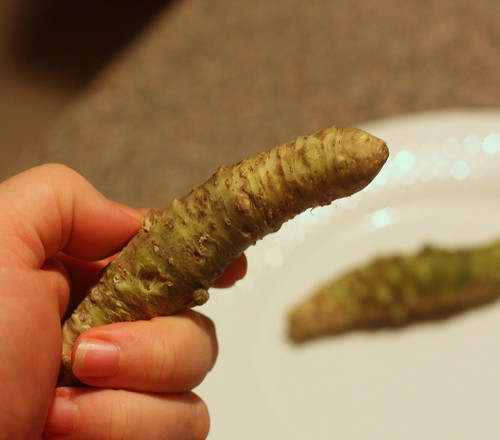
Wasabi Rhizome close-up. Get your mind out of the gutter, its not a Shrek phallus.
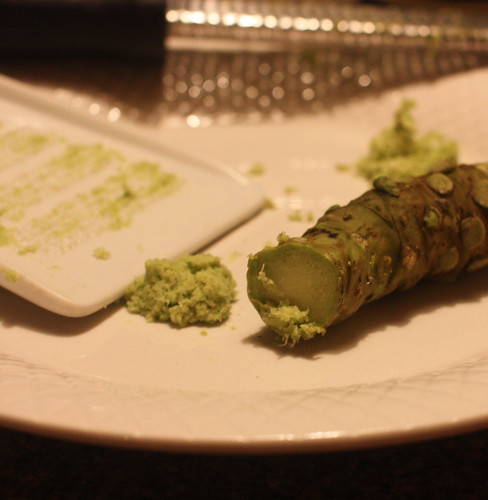
Traditionally shark shin is used to grate Wasabi, but we had pretty good success with a regular ginger grater and a Microplane.
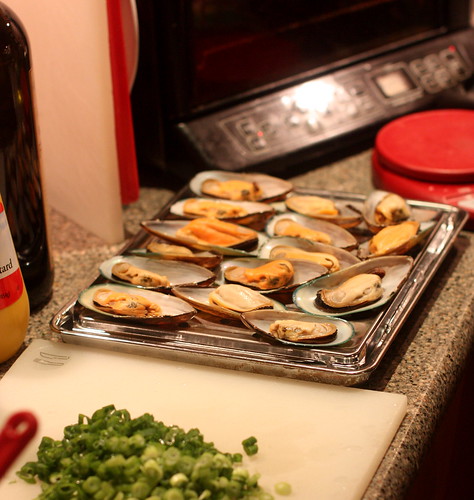
To fully appreciate the Wasabi, we decided to pair it with some simple seafood dishes. I picked up some green lipped New Zealand mussels, the type used commonly in
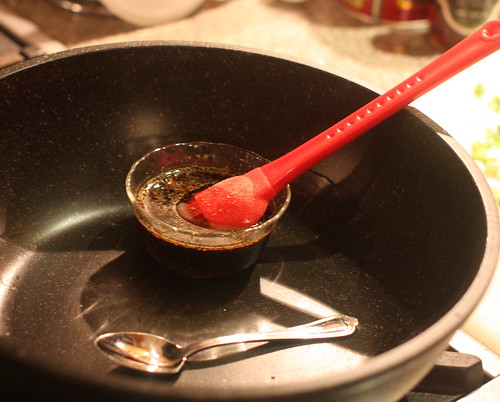
I made a sauce of 50/50 Sake and Soy Sauce, with a big heaping spoonful of grated wasabi, plus white pepper and sesame oil added for flavor.
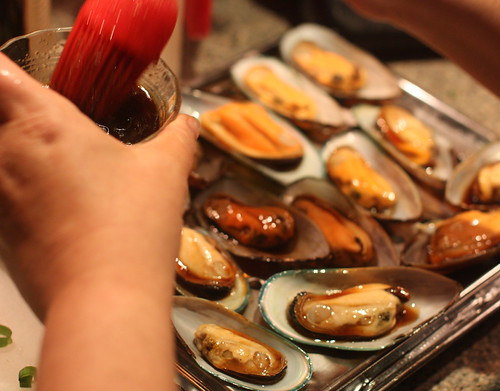
Sauce was painted onto the mussels.
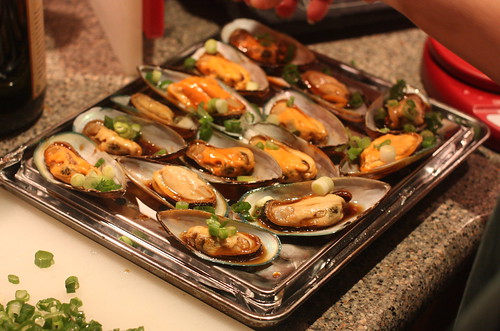
Garnished with green onion, and broiled for approximately 3 minutes. The mussels were of the ready-cooked, frozen variety which we thawed out in the fridge overnight, so they didn’t need long.
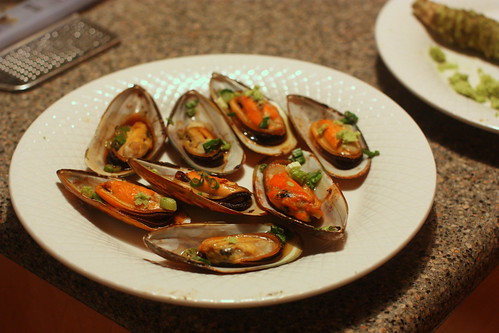
And here they are plated, with extra wasabi on top.
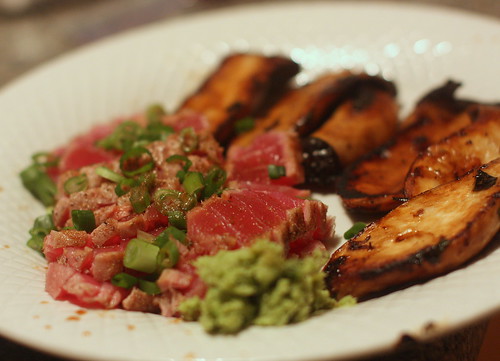
Wasabi of course is naturally paired with fish. We seared up some tuna, and poured over some of the Shoyu/Sake we made for the mussels, and grilled up some King Oyster Mushrooms which we basted with more of the Shoyu/Sake and garnished with more green onion.
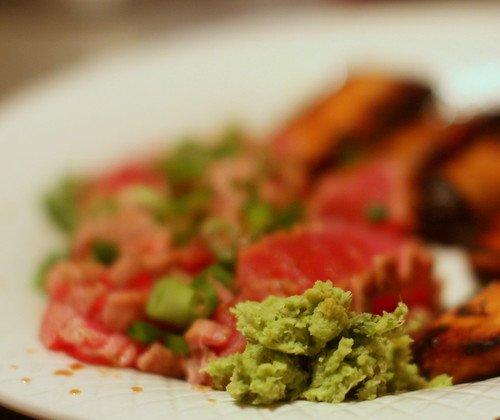
Fresh grated wasabi closeup.
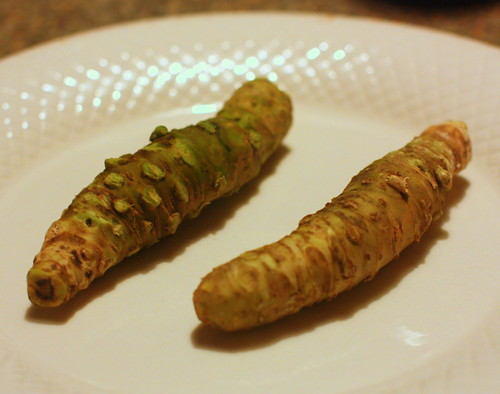

No comments:
Post a Comment